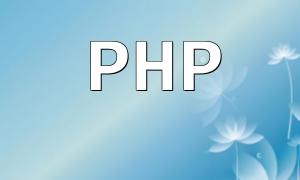As internet technology advances, network communication efficiency has become a critical factor in PHP application performance. Properly optimizing network communication can speed up response times, reduce server load, and enhance overall user experience. Below are several common and practical optimization techniques with code examples.
HTTP/2 is an upgraded version of the HTTP protocol that supports multiplexing, allowing multiple requests to be handled simultaneously, and compresses header information to reduce transmitted data size. To implement HTTP/2, both the server and client must support it. Example code is as follows:
<?php
$handler = new GuzzleHttpHandlerCurlMultiHandler();
$handler->setHandle($curlHandle);
$client = new GuzzleHttpClient([
'handler' => $handler,
'http_version' => '2.0',
]);
$response = $client->request('GET', 'https://example.com');
$body = $response->getBody()->getContents();
echo $body;
?>
Persistent connections allow multiple HTTP requests over a single TCP connection, reducing the overhead of repeatedly establishing and closing connections, thus improving communication efficiency. This can be enabled by adding the Connection: keep-alive header in the request. Example code:
<?php
$ch = curl_init();
curl_setopt($ch, CURLOPT_URL, 'https://example.com');
curl_setopt($ch, CURLOPT_RETURNTRANSFER, true);
curl_setopt($ch, CURLOPT_HTTPHEADER, ['Connection: keep-alive']);
$body = curl_exec($ch);
curl_close($ch);
echo $body;
?>
Caching can significantly reduce the number of network requests and improve application performance. PHP commonly uses memcached or redis to cache frequently accessed data, reducing database load. The following example shows basic usage of memcached caching:
<?php
$memcached = new Memcached();
$memcached->addServer('127.0.0.1', 11211);
$data = $memcached->get('key');
if ($data === false) {
$data = fetchDataFromDatabase();
$memcached->set('key', $data, 3600); // Cache for one hour
}
echo $data;
?>
Enabling compression technologies such as gzip effectively reduces data size during transmission and improves load speed. PHP can use ob_gzhandler to enable output compression. Example:
<?php
$data = fetchDataFromDatabase();
ob_start('ob_gzhandler'); // Enable gzip compression
echo $data;
ob_end_flush();
?>
Network communication performance plays a key role in PHP application response speed and user experience. This article introduced four optimization strategies: using HTTP/2, enabling persistent connections, caching techniques, and data compression—all effective ways to improve PHP network communication efficiency. Hopefully, these tips help developers build more efficient and stable PHP applications.









